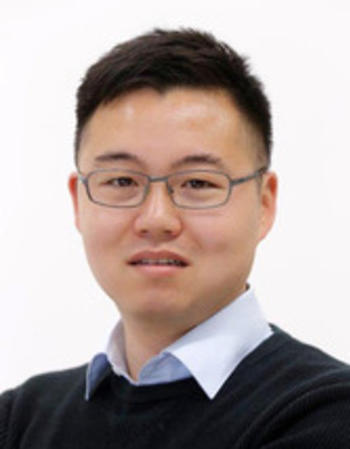Prof. Dr. Dr. Fupeng Li

Fellow in the project "A Translingual Conceptual History of Chinese Worlds" (June - August 2023)
Short Biography
Fupeng Li studied law at the China University of Political Science and Law (CUPL) in Beijing and Goethe University Frankfurt. He was awarded two doctorates in law in 2017 and 2020 respectively by exploring the reconfiguration of the Chinese thinking of sovereignty (2017. CUPL) and the Chinese translation of socio-economic rights from the Weimar Constitution (2020, Goethe University). Between 2017 and 2020, he was a Researcher at the Max Planck Institute for European Legal History focusing on the global legal history and methods of legal history. Since 2021, he is an Associate Professor of Legal History at the Law Faculty CUPL as well as an Affiliate Researcher at the MPI continuing the projects of Glocalising Normativities, Chinese Rites Controversy, and Using Normative Knowledge from the Past. Starting in 2023, he will head a Max Planck Partner Group committed to writing a global legal history with China through the use of digital technologies.
Project
Translingual Making of Worlds through Chinese Global Travels (1905-1906)Global travel may be one of the most intuitive ways for the Chinese to redefine themselves by perceiving the worlds in late Qing China. At the same time, the presence of Chinese travellers led to the inclusion of China in the reference system on the worlds by the countries visited. The act of observation constantly gives rise to the observed. Through translingual writing, the interweaving of sights unfolds as an attempt at world-making with ambiguity. Among numerous trips, the Political-Constitutional Missions of 1905-1906 were the most representative in connecting China to the world in the official name of the Qing Empire.
In the summer of 1905, edicts from the imperial palace in Beijing appointed five special missioners to study political systems abroad. This mission represented the first concert actions taken by the moribund Qing dynasty toward a change of the government of China. Both missions crossed the Pacific, Atlantic and Indian Oceans from east to west. The first group of the mission, led by Tuan Fang (端方) and Dai Hongci (戴鸿慈), set off in late 1905. They visited 13 countries, including Japan, the United States, Britain, France, Germany, Denmark, Sweden, Norway, Austria-Hungary, Russia, the Netherlands, Switzerland and Italy. Departing in early1906, the second group, led by Zai Ze (载泽), visited five countries, including Japan, the United States, Britain, France and Belgium. In the autumn of 1906, all five missioners returned to Beijing. They reported to the Qing court the results of their political- constitutional missions to the countries mentioned above.
This project will use two types of historical sources to explore the process of world-making as a translingual inter-construction. The first historical source is four diaries by the missioner Dai Hongci (戴鸿慈, 出使九国日记) and Zai Ze (载泽, 考察政治日记), as well as the retinue Jin Ding (金鼎, 随同考察政治笔记) and Cai Qi (蔡琦, 随使日记). As a non-fiction genre of travel writing, these diaries provide a clear account of the author's insights, comments and reflections on various aspects of Japan, the United States and European countries. Moreover, the global travels prompt the authors to formulate a holistic view of the worlds through repeated screening, comparison and appropriation.
The second type of historical material is media coverage, both by news agencies in the countries visited and by the media in China regarding reprints, transcriptions and re- comments. The former includes the Asahi Shimbun, the New York Times, the Times, the Kölner Stadt-Anzeiger, etc., which are still significant today. The latter were widely circulated newspapers in China at the time, including the North China Herald in English, as well as the Diplomatic Gazette (外交报), Shun Pao (申报), Ta Kung Pao (大公报), etc. These reports demonstrate complicated translingual practices, from face-to-face interviews to news writing to being reproduced in the Chinese media.
This project seeks to explore how the worlds were gradually produced through interactive translingual practices from a perspective of global legal history. In particular, how did translations of political-legal terms, such as rights, liberty and equality, etc., create a global entanglement between China and Japan, the United States and European countries? How was information distorted, combined and channelled, consciously or unconsciously, through dialogue, interviews, news reproductions, etc. Moreover, how did this global entanglement not only initiate the regime shift from imperial to constitutional monarchy in late Qing China but also profoundly restructure the constellation of the world?
